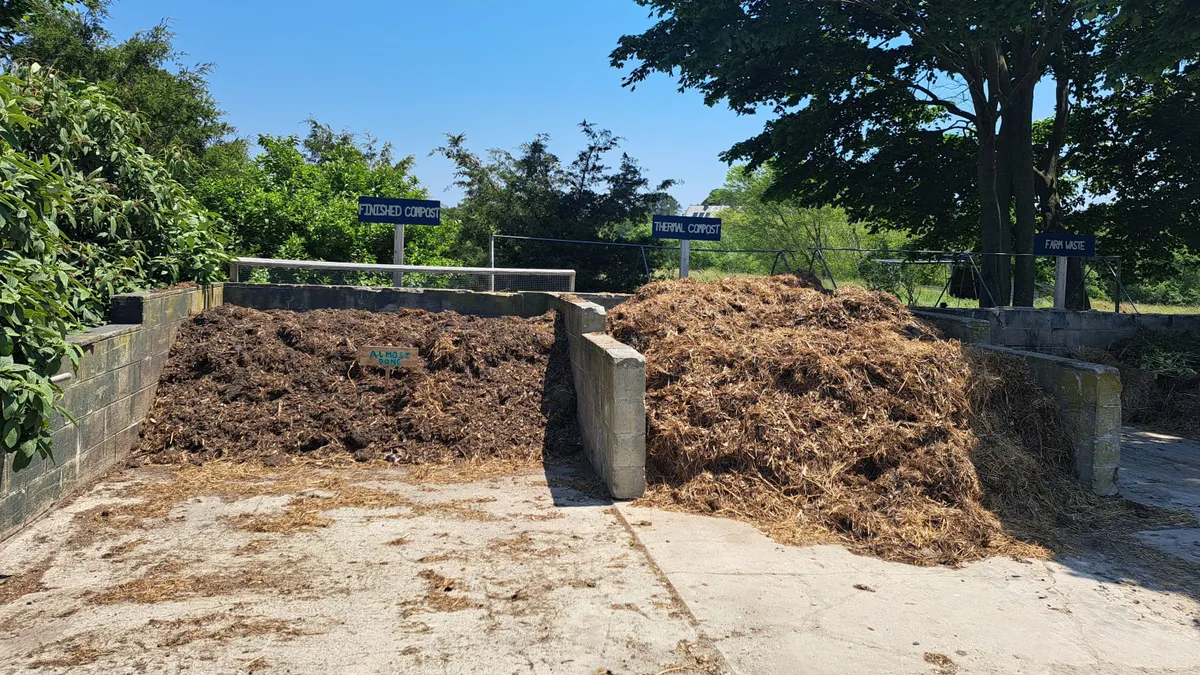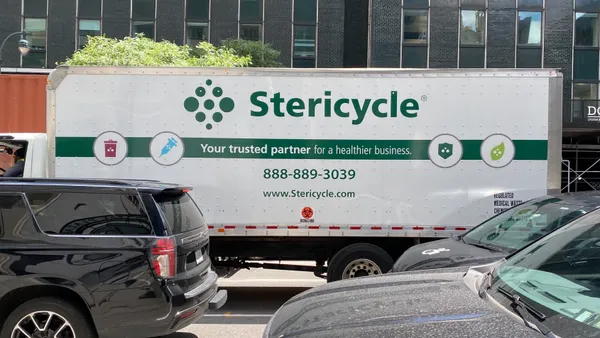Dive Brief:
- Several community groups are expected to receive a collective $1.3 billion in grant funding from the U.S. EPA to pursue local waste reduction initiatives. The money comes from the Community Change Grants Program funded by the Inflation Reduction Act.
- The applicants were part of a group of 84 chosen for the program, EPA announced last week. The initiative funds eligible applicants on a rolling basis, and EPA said it plans to obligate a majority of the funding from this round of selected applicants by January 2025.
- Many of the recipients plan to improve resilience through the creation of community hubs, and they plan to add composting sites or programs to supplement those locations. Others plan to boost recycling, composting and wastewater infrastructure, in some cases for disadvantaged communities.
Dive Insight:
Through the Inflation Reduction Act and other major infrastructure funding mechanisms, the Biden administration has obligated millions of dollars to support modernizing waste infrastructure, often with an eye toward selecting applicants representing disadvantaged communities.
The Biden administration describes the Community Change Grants Program as the “single largest investment in environmental and climate justice in history.” This round builds on EPA’s July announcement of 21 grant selectees.
“On day one of his Administration, President Biden promised to target investments to communities that for too long have been shut out of federal funding,” EPA Administrator Michael Regan said in a statement. “Today, thanks to President Biden’s Inflation Reduction Act, EPA is delivering on that promise. These selections will create jobs, improve public health, and uplift community efforts in all corners of this country, regardless of geography or background.”
One recipient, the Rhode Island Food Policy Council, expects to receive $18.7 million from the grant program. It plans to expand organic recycling infrastructure across nearly 80 census tracts in five Rhode Island municipalities.
The project partners plan to solicit contractors to haul waste from residences, as well as schools and businesses, to centralized composting operations. Nessa Richman, executive director of the council, said education will be a key component of the program.
"If you want people to really invest in composting on the residential and business level, they need to see how composting works," Richman said. "If we're doing it right, we're going to be collecting more food waste and we'll be able to process it at these sites."
Other applicants also plan to expand organics infrastructure alongside a variety of resilience initiatives. Several, including the Rhode Island partnership, also plan to explicitly improve services for disadvantaged communities. Below are a selection of recipients with major waste plans.
| State/Territory | Lead Applicant | Partner Organization | Description |
|---|---|---|---|
| Connecticut | City of New Haven | Greater Dwight Development Corp. | The Elm City Climate Collaborative plans to increase community-based composting, alongside major energy upgrades for buildings and other improvements to city corridors. |
| Rhode Island | Rhode Island Food Policy Council | Groundwork Rhode Island | Groups plan to increase organics recycling among schools, businesses and residences across five municipalities. The program will include technical assistance, training and more composting capacity for the state. |
| U.S. Virgin Islands | Island Green Building Association, Inc. | Virgin Islands Environmental Association | The project partners plan to make infrastructure upgrades in the islands of St. Thomas and St. John. Those include installing "comprehensive recycling and composting infrastructure" as well as enhancing wastewater infrastructure. |
| Texas | Mission Waco, Mission World | City of Waco, TX | The organizations plan to support disadvantaged communities in the city of Waco and in McLennan County, Texas, by creating resilience hubs and expanding "residents' knowledge of and access to compost and community gardens.” |
| California | Santa Ynez Band of Mission Indians | Dos Pueblos Institute | The project partners plan to build a resilience hub on California's Gaviota Coast. The hub will include a "regenerative farming operation" that includes a composting facility to process organic waste. |
| Alaska | Metlakatla Indian Community | Native Conservancy | The project partners plan to deploy a range of community benefits, including a plan to end open-air municipal trash burning by investing in waste management. |
| Washington | Okanogan County Community Action Council | Office of Rural and Farmworker Housing | The project partners plan to build two community resilience hubs, one of which will rehab an existing food facility "to better safeguard the county's food supply" and implement education and training programs on food waste reduction. |











